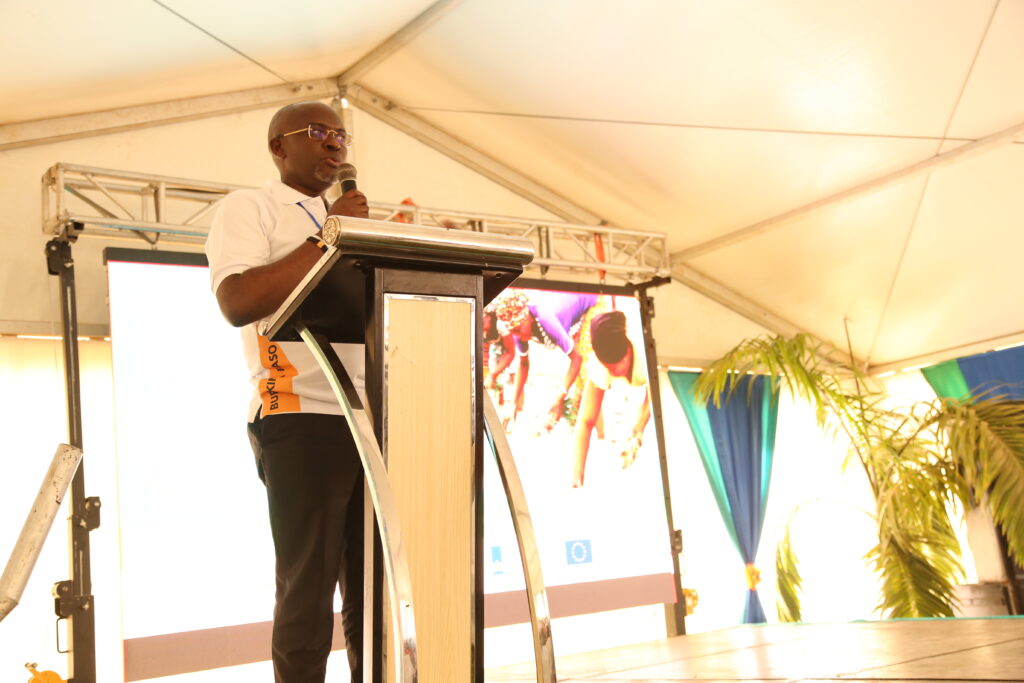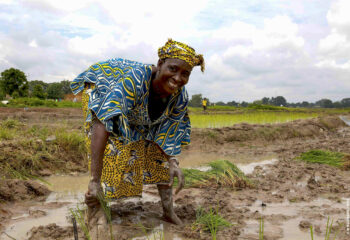
Funded by the Netherlands Directorate-General for International Cooperation (DGIS), the 10-year Soil Values program aims to catalyze sustainable integrated soil fertility management in Burkina Faso, Mali, Niger, and northern Nigeria. Ahead of its official launch on April 16 in Abuja, Nigeria, the program team initiated discussions with several potential partners, including development organizations, projects, and programs in their respective countries.
Soil Values aims to improve soil fertility and productivity with a ten-year target of two million hectares of restored farmland in the Sahel. Additionally, Soil Values seeks to strengthen the resilience and well-being of agricultural producers. With a particular focus on women and young people, the program aims to reach 1.5 million small-scale farmers, including 800,000 women.
Since its conception phase, Soil Values has sought to be inclusive. To this end, it has organized national exchange workshops with national development actors supporting the agricultural sector in the countries concerned to adapt interventions to the specific realities of each target country. These national workshops produced four proposals, one for each of the four countries of intervention, which form the foundations of the Soil Values program.
Soil Values has chosen to adopt a unifying approach aimed at strengthening and enhancing existing soil fertility management initiatives in the respective countries by introducing additional expertise for greater improvements across each country. This approach avoids duplication of actions within the same sector and country, and it encourages participants to pool their efforts around common objectives. From February to March, with the support of the technical coordinators in Niger and Burkina Faso, this unifying approach was reflected in the individual meetings held with existing national projects and programs working on food system resilience.
In Burkina Faso, these meetings enabled important exchanges with the Burkina Faso Agricultural Resilience and Competitiveness Project (PReCA), the World Bank-financed West Africa Food System Resilience Program (FSRP), and the Regional Sahel Pastoralism Support Project (PRAPS). The meetings in Niger led to fruitful exchanges with the Project for Improving Agricultural Productivity through Water and Soil Conservation (PACES), FSRP, the Small-Scale Irrigation and Food Security (PISA II) project, and the Regional Soil Fertility Mapping Project (PRCFS/INRAN) funded by the Islamic Development bank.
The exchanges facilitated the identification of avenues for collaboration and synergies of action, as well as genuine partnerships, all of which will be further defined at forthcoming technical workshops, leading to the development of a matrix of collaborative actions. The resulting avenues for collaboration demonstrate that Soil Values is open and committed to developing synergies of action.
In addition, the Soil Values coordination team visited the Netherlands Embassy in Niger and announced the effective launch of the program. The team also visited the World Bank, where it demonstrated the compatibility of Soil Values with existing FSRP programs and held a short technical discussion with the Senior Agricultural Economist.
The Open Doors events organized by the IFDC offices in Mali and Burkina Faso also offered an opportunity to present Soil Values to various development actors and partners. These events enabled stakeholders to discover the program and share their perspectives on its future interventions.
Soil Values is implemented by IFDC, in collaboration with lead partners SNV and Wageningen University and Research (WUR), as well as knowledge partners, such as AGRA, World Agroforestry (ICRAF), the International Institute of Tropical Agriculture (IITA), ISRIC – World Soil Information, and the International Water Management Institute (IWMI).




